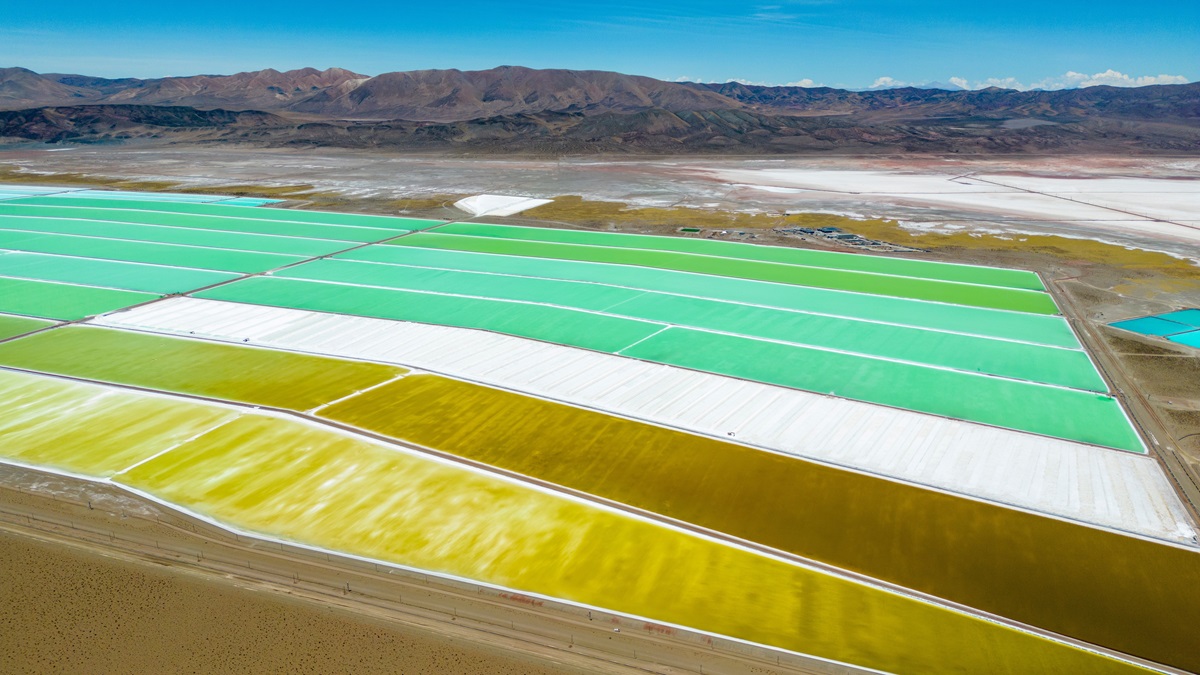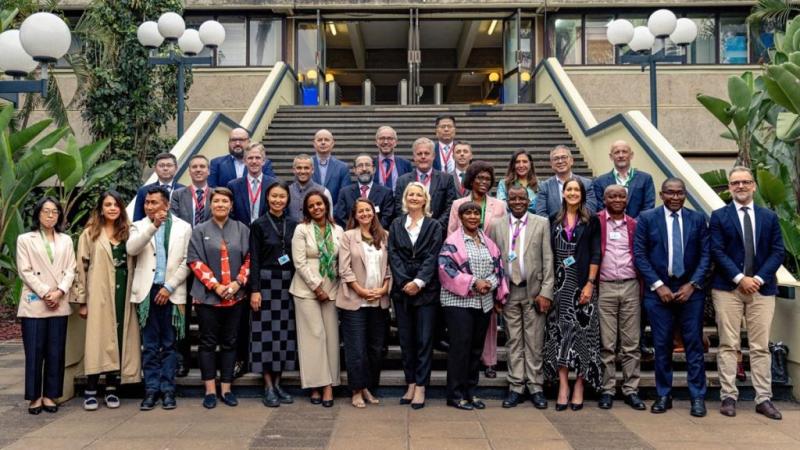Harnessing minerals critical for a just and equitable transition to renewable energy requires new approaches with people and the planet at their core. But how?
© Shutterstock/ Freedom_wanted | Lithium fields in northern Argentina. The mineral is commonly used for electric vehicle batteries, mobile devices and grid-scale energy storage.
New approaches rooted in equity and justice are crucial to resourcing the energy transition, says the UN Secretary-General’s Panel on Critical Energy Transition Minerals in its report released on 11 September.
As the climate crisis deepens, global demand for minerals critical for clean energy technologies – such as lithium for electric vehicles, or selenium for solar cells – is expected to triple by 2030 and quadruple by 2040, according to the International Energy Agency.
Concluding intense work, the panel sets forth guiding principles and recommendations to help ensure the global energy transition fully benefits all countries and communities rich in critical minerals – including developing economies across Africa, Asia, Latin American and the Pacific.
“Developing countries as partners in the energy transition can foster development through opportunities for value addition, benefit sharing, economic diversification and participation in the critical energy transition minerals value chains that will power the next generations, rather than serve only as the providers of raw materials,” the report reads.
The panel, comprising actors from government, industry and civil society worldwide, was supported by a UN secretariat co-led by Secretary-General António Guterres’ climate action team, the UN Environment Programme and UN Trade and Development (UNCTAD). 17 more UN agencies also provided technical advice.
Main principles and recommendations
The report underscores the need for justice, equity, and sustainability throughout the value chain of critical minerals – from mining, refining and manufacturing, to transport and end-of-use recycling.
It advocates for fair and transparent contracts, strong governance and economic fairness for equitable trade and investment partnerships.
It also highlights environmental and social safeguards to prevent harmful mining practices from the past, urging equitable targets and timelines to implement material efficiency and circularity approaches across the entire life cycle of critical energy transition minerals.
The report recommends establishing a high-level expert advisory group to be hosted by the UN to facilitate dialogue on greater benefit-sharing, value addition, economic diversification, trade and investment, and fiscal policy to unlock the potential of local critical mineral resources for a sustainable future.
Ongoing contributions from UN Trade and Development
UN Trade and Development has long supported mineral-rich developing countries to add more local value, create better jobs and reduce reliance on raw material exports and exposure to volatility in commodity prices.
Leading up to the panel report, it led work streams on local value addition and benefit sharing, as well as transparent and fair trade and investment.
Looking ahead, the organization is committed to helping ensure that equity and justice shape the growing market for critical minerals, and that mineral wealth catalyzes sustainable development rather than exacerbating inequalities.
With its convening power and consensus-building platforms, UN Trade and Development can help foster international cooperation on key aspects such as access to technology, know-how and financial support.
Through technical cooperation, it can assist countries to enhance their domestic capabilities in processing and manufacturing of critical minerals-related products.
Additionally, the organization will continue advocating for reduced barriers to market access and helping countries navigate complex international trade rules.
It will also support member states to establish transparent and fair governance frameworks to attract responsible foreign investment, ensuring that revenues from critical minerals are reinvested in national economic development.
© UN Environment Programme | Deputy Secretary-General Pedro Manuel Moreno (first right) represents UN Trade and Development (UNCTAD) at a meeting with the UN Secretary-General’s Panel on Critical Energy Transition Minerals held in Nairobi, Kenya, in August 2024.


